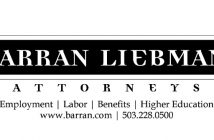Just over four years ago I wrote an article for the Cascade Business News entitled “Internal Controls Help Reduce Embezzlement.” At the time I wrote the article, embezzlement seemed to be affecting several Central Oregon businesses. I focused on the theory that employees, given the opportunity to embezzle, and being motivated to do so, will embezzle. In the article I explained ways to reduce the “opportunity” for embezzlement by designing and implementing internal controls. Since the publication of that article, a pattern of embezzlement has developed in Central Oregon. It has become an increasingly important issue.
Like most CPAs, I’ve seen my share of embezzlement cases. One of these incidents affected me directly. My story begins when I was working as a CPA in Idaho. I was helping to assist a large company (over 100 employees) to install a new accounting software program. The accounting manager was a sweet older woman who had been with the company since its inception and was retiring in a month. While getting to know her, I realized the company owner had put his full trust and faith in her; she had unlimited check-signing authority. She also had control of the checkbook and accounting records. Also, she regularly reconciled the monthly bank statements.
I knew this lack of internal controls created a huge opportunity for a would-be embezzler, and I stated my concerns to the owner. However, he didn’t seem worried. He then asked me to serve on the hiring committee for her replacement. After an exhaustive search, we finally we found the quintessential accounting professional, with the proper accounting education and experience. A quick criminal background check came up clean. The interview went smoothly, and the owner offered her the job.
Before she began work, I had the chance to explain internal controls to the owner and suggested that he should not give her all the authority (e.g., check signing) her predecessor had possessed. He said he wouldn’t. But within her first week of work, she was signing checks. When I asked to owner “why,” he told me that his latest decision was necessary to keep the company running efficiently and effectively. I asked him if he would at least allow me to reconcile the monthly bank statements; he agreed.
The accounting manager had been employed about two weeks when the end of the month rolled around. I dropped by the office to pick up the bank statement package which included returned cancelled checks. The package was on the accounting manager’s desk, and when she handed it to me it appeared to be tampered with. She was told not to open the package beforehand, so I was surprised by its appearance. I asked what had happened to it, and she explained that the postman had dropped it.
I took the bank statement package to a separate office and began to reconcile it to the company’s accounting records. Quickly, I determined that something wasn’t right. Five checks that had been listed as cleared on the bank statement were not physically in the bank package. It would be a very rare occurrence if one cancelled check was missing in a case like this, but five missing checks defied all odds.
I immediately call the bank and asked them to fax me copies of the five missing checks – front and back. When the faxes arrived 20 minutes later, it became obvious: the accounting manager was embezzling – $10,000 so far. The five checks had been used to pay off the accounting manager’s car loan, ATV loan, and various credit card balances. Later that evening, I reviewed the evidence with the owner, and he told me he would question the accounting manager the next morning.
At first she denied it. Then she claimed she was only borrowing the money and was going to pay it back. She was fired on the spot, and the police were called. When the investigator arrived, he asked us if the embezzler had offered to pay back the embezzled funds. The owner stated that the embezzler had, in fact, been calling non-stop that morning trying to get him to accept the restitution money. The investigator revealed that many embezzlers are serial embezzlers and that they use this “payback approach” to avoid prosecution.
He went on to say that many employers will take the money and allow the embezzler to go free—free, that is, to try to embezzle from another business. This might explain why she had a clean criminal record. The owner, being an honorable businessperson, told the investigator he would give up the $10,000 payback if it would make it difficult for her to embezzle from another unsuspecting business owner.
As mentioned above, embezzlement cases appear to be making headlines again—and right here in Central Oregon. As I hear about the companies that are affected, I feel great sadness for the owners. I know personally how easy it is to be deceived and how a breach of trust can hurt, both financially and emotionally. The truth is that embezzlement never takes a day off. It is always out there lurking–waiting for an opportunity to present itself. Add a little motivation, and new headlines appear.
There are many great guidebooks on ways to reduce the chance of embezzlement in your company. The one that I often refer to is Policies & Procedures to Prevent Fraud and Embezzlement by Edward J. McMillan, CPA. Get a guidebook, read it, and become proactive against this persistent threat. Most of all, don’t be overly trusting, no matter how well-credentialed an employee might be.
Scott Hays is Associate Professor of Accounting at Central Oregon Community College and Chair of the Business Department. He can be reached at 541/383-7715.




